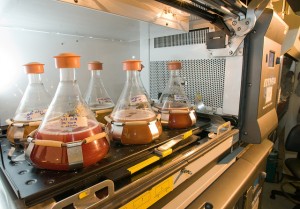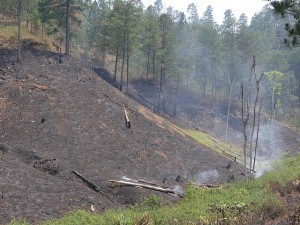As an answer to the increasing oil prices, energy conservation and concerns regarding global warming, biofuels have been considered a plausible alternative to other energy sources. Biofuels consist of a variety of fuels, which have been derived from biomass, earth’s renewable biological resources. Through some reading online, I believe that biofuel is as an environmentally harmful resource for three main reasons. Whether it be because the fact that food prices will increase with a decrease in crops…or because there will be an actual increase in global warming…or because of the inability for crops to keep up with the demand of biofuel-materials…I feel that biofuels need to reconsidered as an alternative for our everyday energy uses.
First, biofuel is produced from plant oils and from edible crops, which means that we have to make the choice between food and oil. Scientists studying this issue have realized that food prices have and will continue to increase with an increasing demand for biofuel. The increase in demand for a production of biofuels, in particular biofuels from maize and sugarcane, has had a numerous implications on grain supply-and-demand systems around the world. And because of the need for specifically maize (corn crops), which is extremely profitable to grow, an increasing amount of farmers who previously grew wheat and rice are now switching over to maize crops thus decreasing the availability of wheat and rice.
Second, in order to produce biofuel, the clearing of natural ecosystems for these crops will actually increase global warming contrary to common belief. This is due to the fact that carbon dioxide is produced when you clear natural grasslands and other land areas to create farmland for biofuels. The conversion of native habitats to cropland for biofuels releases carbon dioxide into the atmosphere as this is due to burning or microbial decomposition of organic carbon that is stored in the biomass of the earth. Basically, until the carbon debt is repaid, biofuels from converted lands will actually have greater green house gas emission than the fossil fuels they are displacing.
Last but not least, the current crops we are producing cannot keep up with the demand of bio-materials needed for producing biofuel. Farmers struggle to keep up with the demand for biofuel crops, as this demand shifts up demand for staple crops. In other words, the biofuel demand is so high, that farmers cannot maintain their main crops, staple crops, and as a result these main crops also end up being in high demand.
It seems as though biofuel will only increase food prices, increase global warming and cause farmers to be faced with an inability for their crops to keep up with the demand of biofuel-materials. With these main points in mind, I ask you to reconsider the use of biofuels in our society and question whether they are not only beneficial to us humans, but also beneficial to the earth we live and rely on.
-Derek Rejto








